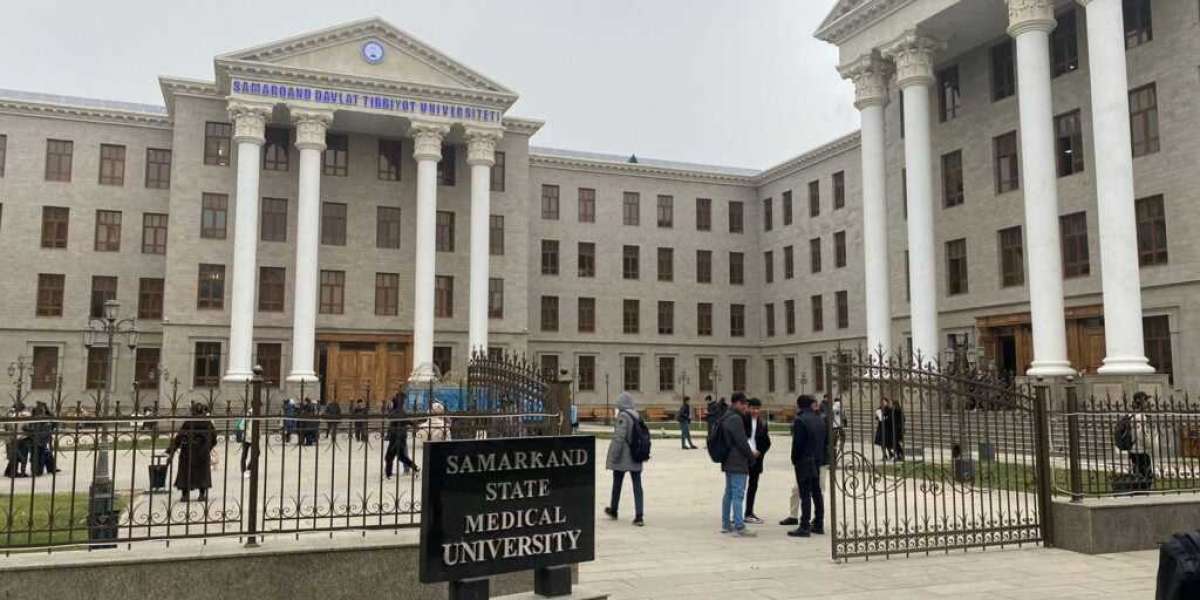MBBS in Uzbekistan is rapidly emerging as a preferred destination for Indian students aiming for quality medical education at affordable fees. With well-structured courses, internationally recognized degrees, and ample clinical exposure, Uzbekistan offers a compelling alternative to the high costs and limited government seats in India. This article explores in detail the duration of the MBBS program, comprehensive syllabus, and clinical training structure in Uzbekistan, providing aspiring medical students a complete understanding of what to expect.
Course Duration of MBBS in Uzbekistan
The total duration of the MBBS program in Uzbekistan is 6 years, which is in line with many European and Asian countries. Here's a breakdown of the timeline:
5 Years of Academic Education: This includes both theoretical and practical knowledge across various pre-clinical, para-clinical, and clinical subjects.
1 Year of Internship (Clinical Rotation): Conducted in university-affiliated hospitals under the supervision of experienced doctors.
Year-Wise Breakdown:
| Year | Focus Area |
|---|---|
| 1st | Anatomy, Histology, Medical Biology |
| 2nd | Physiology, Biochemistry, Microbiology |
| 3rd | Pathology, Pharmacology, Introduction to Clinics |
| 4th | Internal Medicine, Surgery, Pediatrics |
| 5th | Obstetrics Gynecology, ENT, Ophthalmology |
| 6th | Clinical Internship across multiple departments |
Detailed Syllabus Structure for MBBS in Uzbekistan
The MBBS syllabus in Uzbekistan is designed to offer a strong foundation in basic sciences, gradually progressing into clinical subjects and real-world applications.
Pre-Clinical Phase (Year 1–2)
This phase focuses on building foundational knowledge in the following subjects:
Human Anatomy: Gross anatomy, embryology, neuroanatomy
Histology Embryology: Microscopic structures and fetal development
Medical Biology Genetics: Understanding hereditary and cellular processes
Biochemistry: Cellular metabolism, biomolecules, enzymology
Physiology: Organ system functions and mechanisms
Microbiology Immunology: Bacteria, viruses, fungi, and immune response
Para-Clinical Phase (Year 3)
This year bridges basic sciences with clinical application:
Pathology: General and systemic pathology
Pharmacology: Drug mechanisms, interactions, prescriptions
Forensic Medicine Toxicology: Legal implications in medicine
Community Medicine: Epidemiology, preventive medicine, public health
Clinical Phase (Years 4–5)
These two years involve intense exposure to hospital settings and hands-on training:
Internal Medicine
General Surgery
Pediatrics
Obstetrics Gynecology
Ophthalmology
Otorhinolaryngology (ENT)
Dermatology Venereology
Psychiatry
Orthopedics Traumatology
Anesthesiology
Students are encouraged to attend clinical wards, practice patient communication, perform minor procedures under supervision, and participate in case presentations.
Clinical Training in MBBS in Uzbekistan
One of the key strengths of the MBBS curriculum in Uzbekistan is its robust clinical training module. Starting as early as the 3rd year, students are integrated into the hospital ecosystem to develop practical competencies.
Highlights of Clinical Training:
University-Affiliated Hospitals: Medical universities are attached to large public and private hospitals in cities like Tashkent, Samarkand, Andijan, and Bukhara.
Bedside Learning: Students practice under mentors and interact directly with patients.
Simulation Labs: Many universities offer advanced laboratories equipped with mannequins and AR/VR technology to simulate clinical scenarios.
Research Opportunities: Clinical training often includes participation in ongoing research or case studies.
Internship (6th Year):
Rotations across departments like General Medicine, Surgery, Pediatrics, Gynecology, Emergency Medicine, and more.
Includes compulsory logbooks and clinical case evaluations.
Internship is valid in India if the university is NMC-approved and the student clears FMGE/NEXT.
Key Universities Offering MBBS in Uzbekistan
Below are some of the top medical universities known for strong academic and clinical programs:
| University Name | City | Recognitions |
|---|---|---|
| Tashkent Medical Academy | Tashkent | NMC, WHO, FAIMER |
| Samarkand State Medical University | Samarkand | NMC, WHO, UNESCO |
| Bukhara State Medical Institute | Bukhara | NMC, WHO, ECFMG |
| Andijan State Medical Institute | Andijan | NMC, WHO, WDOMS |
| Tashkent Pediatric Medical Institute | Tashkent | NMC, WHO |
Medium of Instruction and Teaching Methodology
Medium: English is the primary medium of instruction for international students, particularly in NMC-approved universities.
Methodology:
Interactive lectures
Problem-based learning (PBL)
Practical demonstrations
Small group discussions
Case-based learning in hospital wards
This approach helps develop clinical decision-making skills and critical thinking—essential traits for a successful medical career.
Global Recognition and Future Opportunities
MBBS degrees from Uzbekistan are recognized by NMC (India), WHO, ECFMG (USA), and WDOMS.
Graduates are eligible to appear for:
FMGE/NEXT (India)
USMLE (USA)
PLAB (UK)
AMC (Australia)
After clearing these licensing exams, students can pursue postgraduate medical education or clinical practice in India and abroad.
Why Indian Students Prefer MBBS in Uzbekistan
Here are some compelling reasons:
Affordable Fees: Total course fees range from ₹18 to ₹30 lakhs for the complete 6-year program.
Low Cost of Living: Monthly expenses for accommodation, food, and travel are around ₹12,000–₹15,000.
High-Quality Education: Strong academic structure and clinical exposure
No Donation/Capitation Fees
Globally Valid Degree
Safe and Culturally Friendly Environment
Final Thoughts
Pursuing a medical degree from Uzbekistan can be a game-changer for Indian students who dream of becoming doctors but are held back by the high costs and limited seats in India. With a well-structured 6-year program, a globally aligned syllabus, and extensive clinical training, MBBS in Uzbekistan offers a value-driven, internationally recognized path toward a medical career.
Whether you're just starting your NEET journey or exploring post-NEET options, consider Uzbekistan as a serious and reliable destination for your MBBS abroad dream.



